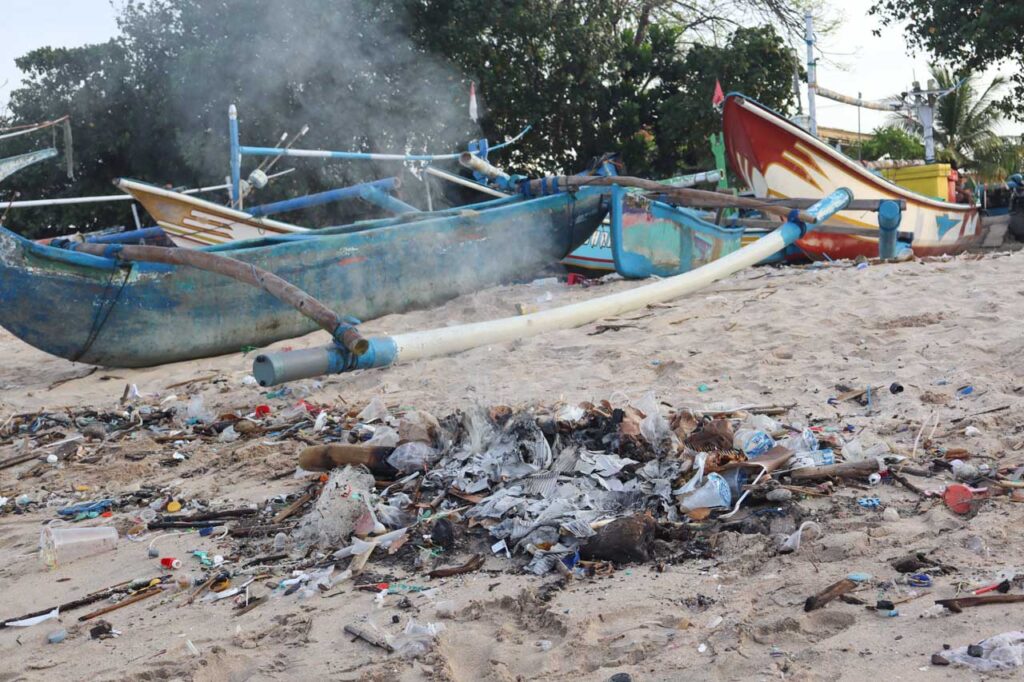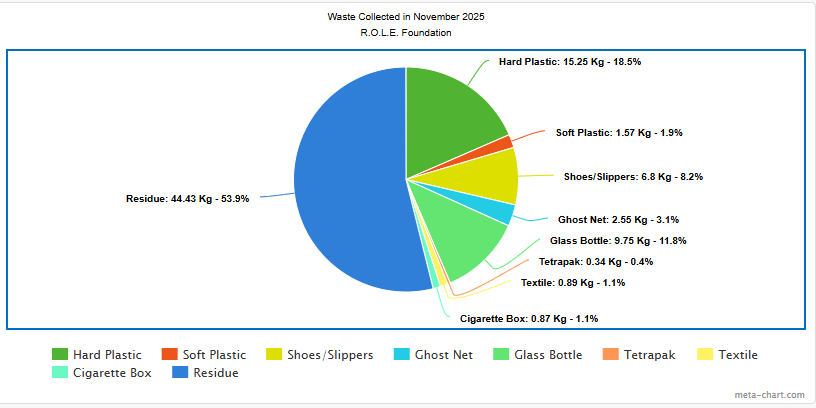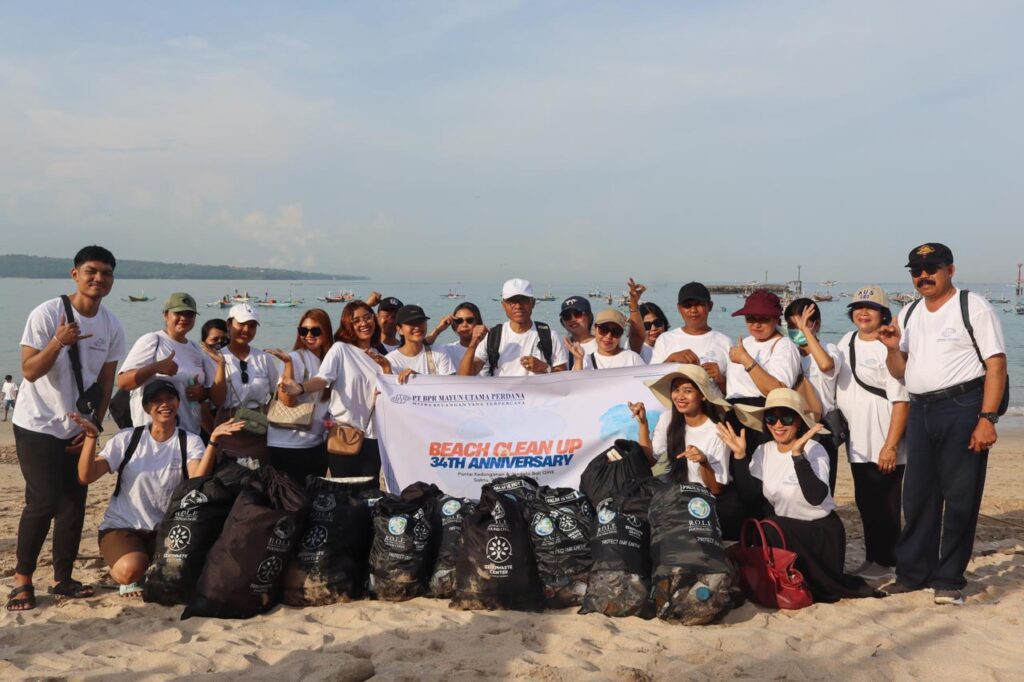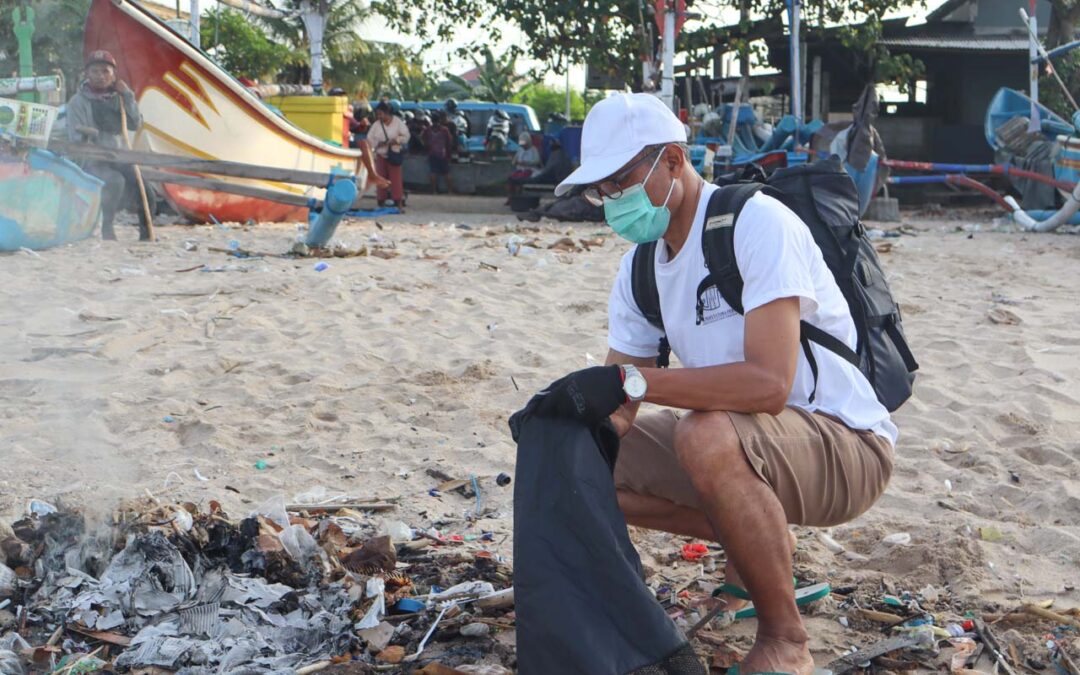On 22 November 2025, the R.O.L.E. Foundation conducted a beach cleanup initiative at Kedonganan Beach in collaboration with BPR Mayun, bringing together 35 participants for the event. Within a short period, the team collected 82.45 kilograms of non-organic waste from the site, which is situated near the local fish market. The collected waste was subsequently transported to the ZeroWaste Center for detailed sorting. As part of an educational component, participants continued to be involved in the sorting process, providing them with firsthand insight into proper waste management practices for materials commonly found along the coastline. Although this cleanup does not represent a comprehensive solution to marine pollution, it serves as an important step toward increasing public awareness and encouraging broader recognition of the severe waste challenges facing our beaches due to inadequate waste management systems.
Location and Condition of the Beach

Kedonganan Beach, located near Jimbaran, is widely recognized for its vibrant fish market and scenic shoreline. The area attracts both local residents and international visitors, offering a distinctive cultural experience characterized by bustling seafood stalls and traditional fishing boats. However, the beach’s growing popularity has also led to increased waste accumulation, with plastic debris, food packaging, and other non-biodegradable materials frequently found along the coast. Addressing this issue is essential not only to preserving the beach’s natural beauty and ecological integrity but also to ensuring the long-term sustainability of marine ecosystems and the livelihoods of the surrounding communities.
Waste Collection and Separation

During the cleanup, approximately 82.45 kilograms of non-organic waste were collected within roughly one hour. The largest portion—over 50%—was classified as residue, consisting of materials that were severely damaged or heavily contaminated and therefore unsuitable for processing at our facility. This category will be transported to a landfill for proper disposal and management. Glass bottles represented a significant portion of the collection, totaling nearly 10 kilograms. These will be processed at our center, with a portion directed to a waste bank to support more efficient recycling efforts. Hard plastics—including bottles, cups, and styrofoam—comprised approximately 18% of the total waste and will similarly be managed through the waste bank for further recycling. Soft plastics, along with miscellaneous items such as shoes and sandals, accounted for a smaller share of the waste collected during the initiative.
Play a ROLE!

You can support our next beach cleanup and be part of the waste solution in Bali! Reach out to us now via email to capbuild@rolefoundation.org or WhatsApp at +62 812-4686-3648!


Recent Comments